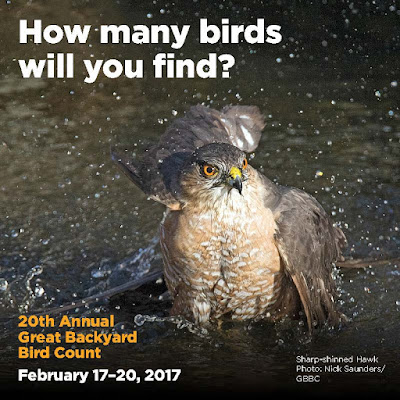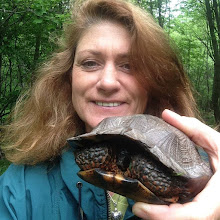I received an email from the NJSOC letting me know they are offering their Herpetology workshop again this year! YES PLEASE!
If I was allowed one do over in this life (besides not believing the original radiologist who sent me away 2x and is the reason I'm were I am now) I would have pursued a degree in Wildlife Biology or Zoology. I'd have become a Herpetologist and worked with Turtles. Specifically with species from the NEUS, Wood, Spotted, Bog and Blandings, doing field work. It's never too late to live your dreams. Stay in a college dorm, do field work all day....I can't wait!
Herpetology
MSU NJSOC Herpetology Workshop 2017:
Northeast Reptile and Amphibian Field Ecology
Dates:
Montclair State University's New Jersey School of
Conservation is offering its 6th annual Herpetology workshop from June
12 to 23.
Location:
Most of the course will be taught at the New Jersey
School of Conservation (NJSOC) campus in Stokes State Forest, Sussex
County, New Jersey; off-site field trips will also be integral to the
course. Originally constructed as a CCC camp in 1933, the NJSOC is
Montclair State University's (MSU) environmental field campus and one of
the United State's oldest environmental education centers. The NJSOC
is located 55 miles northwest of MSU's main campus and 75 miles
northwest of Manhattan (approximate driving distances) on a 240-acre
stretch in the middle of Stokes State Forest in Sussex County, New
Jersey. Stokes State Forest is within close proximity to a number of
federal, state, and private land preserves including High Point State
Park and The Delaware Water Gap National Recreation Area. Together,
these lands make up one of the largest undeveloped tracts in New Jersey
and support over 40 of the state's reptile and amphibian species.
About this course:
Reptiles and amphibians, or "herps" as they are
collectively called, are among the most misunderstood and unappreciated
of all vertebrate animals. While their direct value to mankind is not
immediately apparent, herps provide various ecological services at
multiple levels and serve as indicators of environmental health.
Recently, a global decline in herpetofauna has been documented.
Detrimental factors such as habitat fragmentation and destruction,
disease, pollution, invasive species, overexploitation, and collection
for the wildlife trade have affected countless species. Educating
students about the general biology and plight of reptiles and amphibians
will undoubtedly improve public perception of these sensitive creatures
and encourage a desire to protect and conserve them.
This course is designed to introduce college-level
students to the reptiles and amphibians of the Northeast United States,
the environments they inhabit, and the techniques that are used to
conserve and study them in the field. Most of the course will involve
hands-on field activities that allow students to get "up close and
personal" with the salamanders, frogs, toads, turtles, lizards, and
snakes that call the Northeast home. A small number of classroom
lectures and active learning discussions will also contribute to the
student learning experience.
The course will include:
- Discussions of reptile and amphibian natural history: their basic biology, life histories, and habitats
- Discussions on the conservation and management of reptiles and amphibians
- Discussions concerning research design
- Reptile and amphibian identification and taxonomy
- Identification of calling amphibians by ear
- Habitat, plant, and non-herp animal identification
- Reptile and amphibian sampling, trapping, and marking/tagging techniques
- Radiotelemetry
- Reptile and amphibian tissue sampling for DNA analysis
- Collection of occupancy, relative abundance, mark-recapture, physical, environmental, and geographic data
- Field note recordation and organization
- A primer in nature photography
- Day and night surveys for reptiles and amphibians
- Hikes through several diverse northeastern habitats
- Off-site field trips to natural areas that are different from those around the NJSOC
- Participation in ongoing herpetological studies at the NJSOC and elsewhere
Access and Accommodations:
The NJSOC is roughly 75 miles (driving distance) northwest of
Manhattan. Because no means of public transportation connect directly
to the NJSOC, most participants will need to provide their own
transportation; arranging carpools with other participants is strongly
encouraged. At the NJSOC, participants will be provided with typical
field station lodging and cafeteria meals.
Cost:
The workshop will be divided into twoone-week sessions, with each
week-long session involving different schedules, activities, and
learning experiences. Participants will have the option of taking the
course for either one week (5 days) or two weeks (10 days). Cost is
$750.00 per person for one week and $1000.00 per person for two weeks
(discounts available for early registrants; see registration below).
These fees include instruction, meals, and lodging at the NJSOC.
Credit/Certification:
One to three (1-3) transferable, undergraduate credits are obtainable
through Montclair State University for an additional fee. Non-credit
options and course completion certificates are also available upon
request. To receive academic credit and financial aid, participants
attend the course in June and register for the course during Montclair’s
Fall 2017 semester. For all inquiries regarding academic credit,
please contact Dr. William Thomas at:
thomasw@mail.montclair.edu
Qualifications:
No experience is necessary but participants should be capable of
college-level work and have strong interests in field biology, ecology,
natural history, etc. Participants should also be in relatively good
health and capable of hiking several miles in a range of conditions over
moderate-difficult terrain.






















